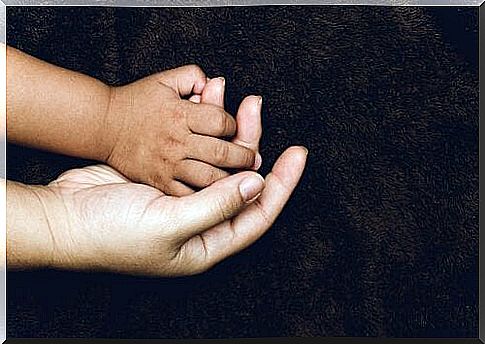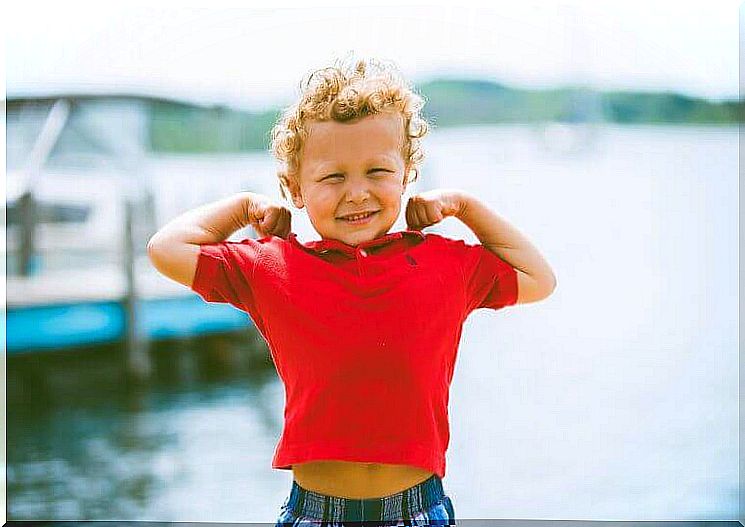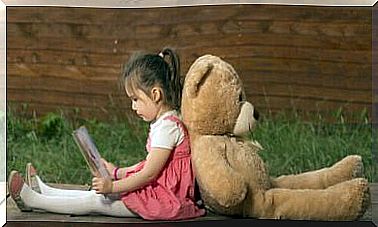Influences On The Attachment Behavior Of Adopted Children

Why is it so important to talk about the attachment behavior of adopted children? Because all adopted children have certain experiences in their first years of life that can hinder their later development – experiences that other children do not struggle with.
These experiences can lead to developmental delays and unsafe behavior in adopted children. Some are overly dependent on their adoptive parents, while others are emotionally distant. Read on to find out possible reasons for these developments.
“When we belong to a mother, a family, a language, a culture, we construct our identity, we become someone.”
Boris Cyrulnik

Which variables influence the attachment behavior of adopted children?
Adopted children often go through difficult situations, unusual for their age, before they arrive in their new families. Some of these situations play an important role in the development of the bond. If the children are mistreated or neglected in their biological family, by their foster parents or in the orphanage, then they develop less secure bonds with their adoptive parents.
In their first years of life, children need adults around them who will respond to their need for support and affection. Children become suspicious and fearful when they are ignored or treated aggressively by their caregiver. You need to feel safe with your caregiver, as this interaction will affect your future relationships.
The same thing happens when children are institutionalized for a long time. Today there are a variety of guidelines to prevent children from being mistreated in orphanages. However, that does not mean that the emotional and psychological needs that are so important at this age can be fully met. This has a direct impact on the attachment behavior of adopted children.
Even if they are physically cared for, there is usually only one home educator for several children. And this educator simply does not have the ability to care for each individual emotionally to the extent they need to.
“What is done to the children, they will do to society.”
Karl Menninger

What Can Adoptive Parents Do To Foster Secure Attachment?
While adoptive parents have no control over past experiences, there are still things they can do to facilitate appropriate social and emotional development. Parental behaviors and personalities play a fundamental role in developing attachment.
Variables That Promote Secure Attachment In Adopted Children:
- Emotional stability
- Stress tolerance
- flexibility
- Appropriate expression of affection
In other words, adoptive parents should be sensible and show secure attachment behavior of their own. In this way, they can lead by example to their children.
Adoptive parents should also have the means to face adversity, regulate their negative emotions, and ask for help when they need it. If they are asking for help, then they shouldn’t feel like bad parents either. Ultimately, willingness to ask for help shows your children how to deal with their feelings.
This will also help them understand and deal with their adoption. This is hugely important as many adopted children feel guilty, unimportant, and abandoned. If they can change their perspective, they will be able to form secure bonds.
“It is not important that everyone has the right to adopt a child, but that every child has the right to be adopted by someone who loves them.”
Fernando Savater
Images courtesy of Rene Bernal, Larm Rmah, and Ben White









